The Role of AI in Modern Digital Camera Technology
6 November 2024
Artificial Intelligence (AI) is undoubtedly reshaping many industries, and the world of photography is no exception. From automated smartphone cameras to high-end professional DSLRs, AI is becoming an integral part of modern digital camera technology. But what exactly is the role of AI in these devices? How does it change the photography landscape, and why should we care? Buckle up, because we're about to dive deep into the fascinating marriage between AI and digital cameras.
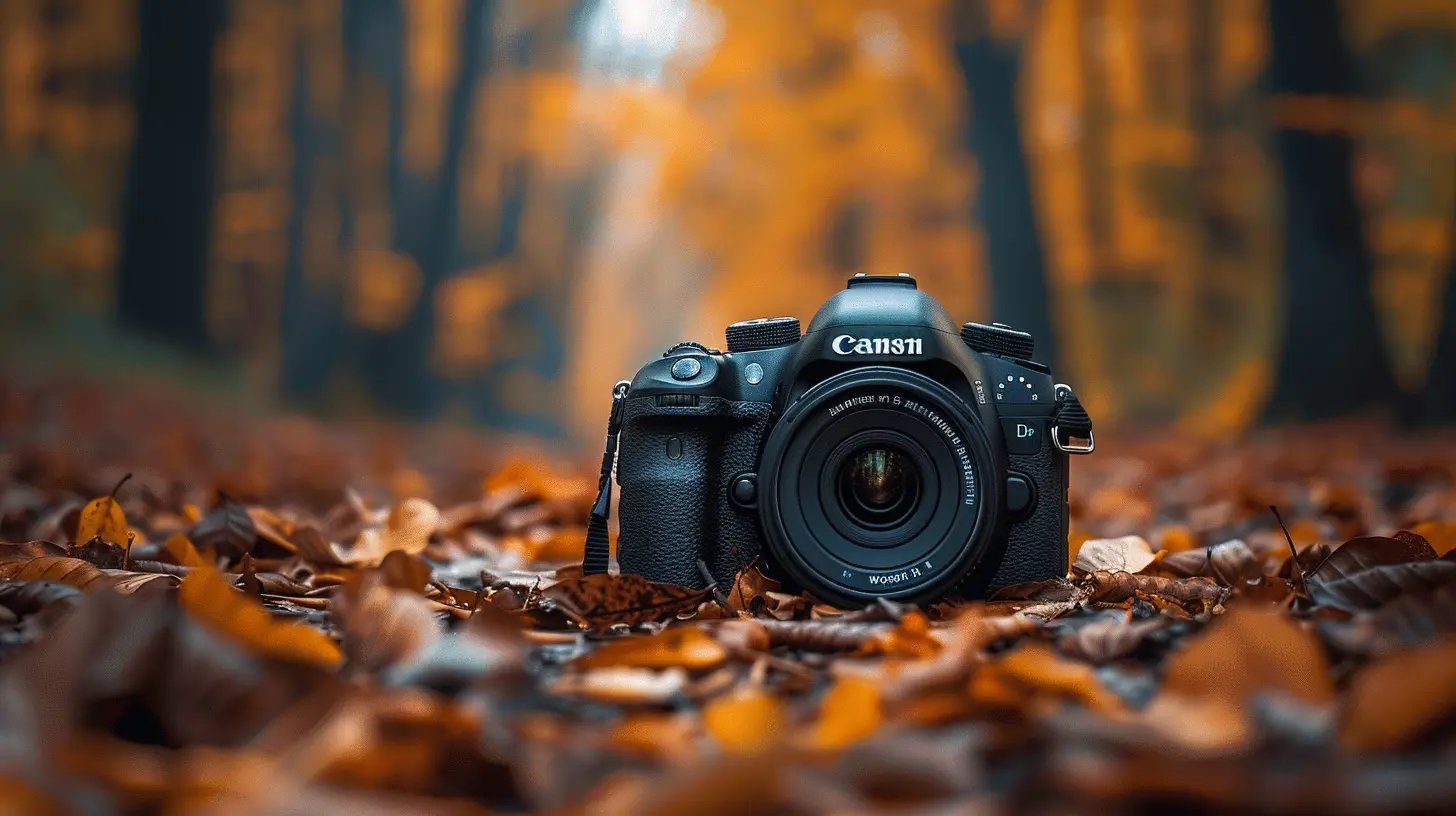
What is AI in Camera Technology?
Before we dive into the specifics, let's break down what we mean by AI in camera technology. Artificial Intelligence, in this context, refers to the use of algorithms and machine learning models to improve or automate various aspects of how a camera operates.Think of AI as the brain behind the lens. It helps the camera "think" and make decisions that would typically require human input. AI can analyze scenes, recognize objects, and even predict what kind of adjustments are needed to capture the perfect shot. It’s like having a personal photography assistant who’s always one step ahead of you.
So, how does AI make a difference in the world of digital photography? Let's explore some of its key roles.
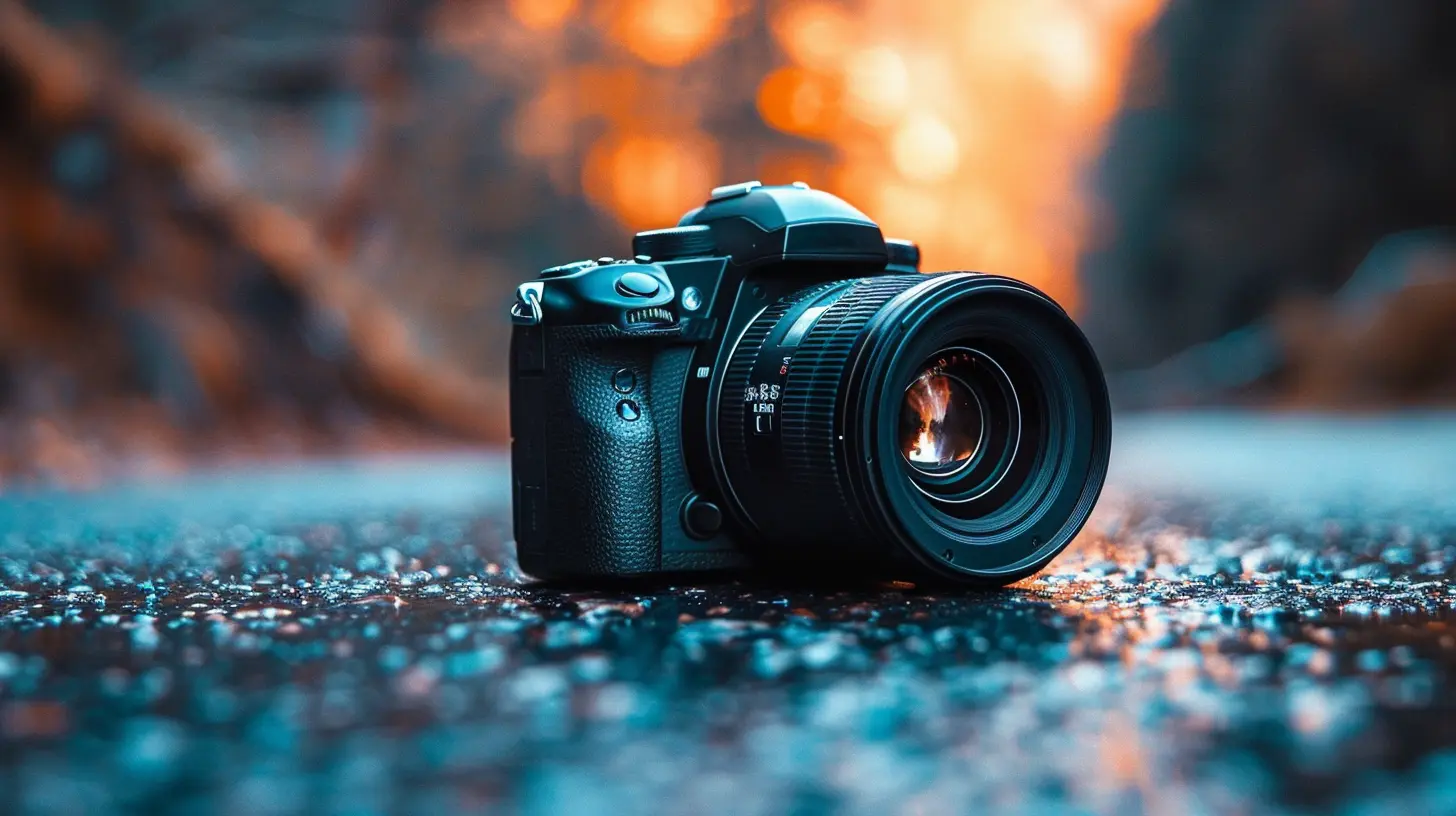
1. Auto Scene Detection
One of the most common uses of AI in modern digital cameras is auto scene detection. This feature allows the camera to automatically recognize the environment or subject and adjust its settings accordingly.For example, if you're taking a picture of a landscape, the camera can detect that it’s an outdoor scene and optimize settings like exposure, contrast, and white balance to enhance the sky, trees, and other elements. Similarly, if you're taking a portrait, AI can recognize the human face and focus on softening the background (also known as bokeh) while ensuring the subject is crisp and well-lit.
Remember the days when you had to fiddle with the settings for minutes before taking a shot? With AI, that guesswork is gone. It’s like having a professional photographer standing beside you, whispering sweet advice into your ear.
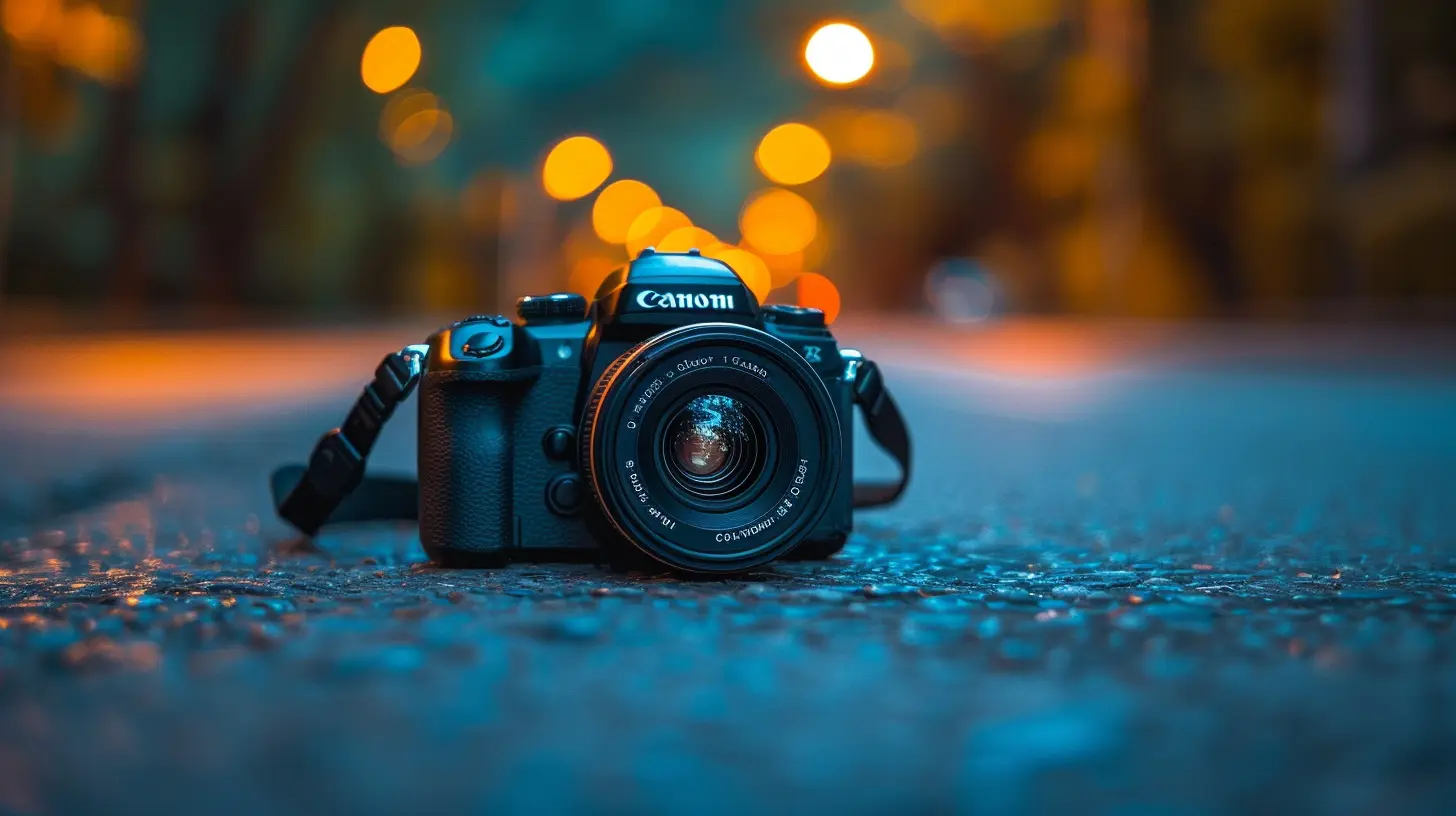
2. Computational Photography
Another area where AI really shines is in computational photography. This is a fancy term that essentially means using software to enhance or create images that wouldn't be possible with traditional photography.AI in computational photography steps in by processing multiple images and combining them into one superior shot. It's like baking a cake: instead of using just one ingredient (a single photo), AI blends multiple ingredients (various exposures, focus points, etc.) to create a final masterpiece.
Take HDR (High Dynamic Range) photography, for example. In the past, capturing high-contrast scenes was tricky. If the sky was perfectly exposed, the ground might be too dark, and vice versa. Nowadays, cameras equipped with AI can take several photos with different exposures and merge them into one perfectly balanced image.
Then we have night mode, which uses AI to brighten up dimly lit environments while maintaining details. No more grainy, underwhelming nighttime shots! Thanks to AI, capturing starry skies or candlelit dinners is now a piece of cake.
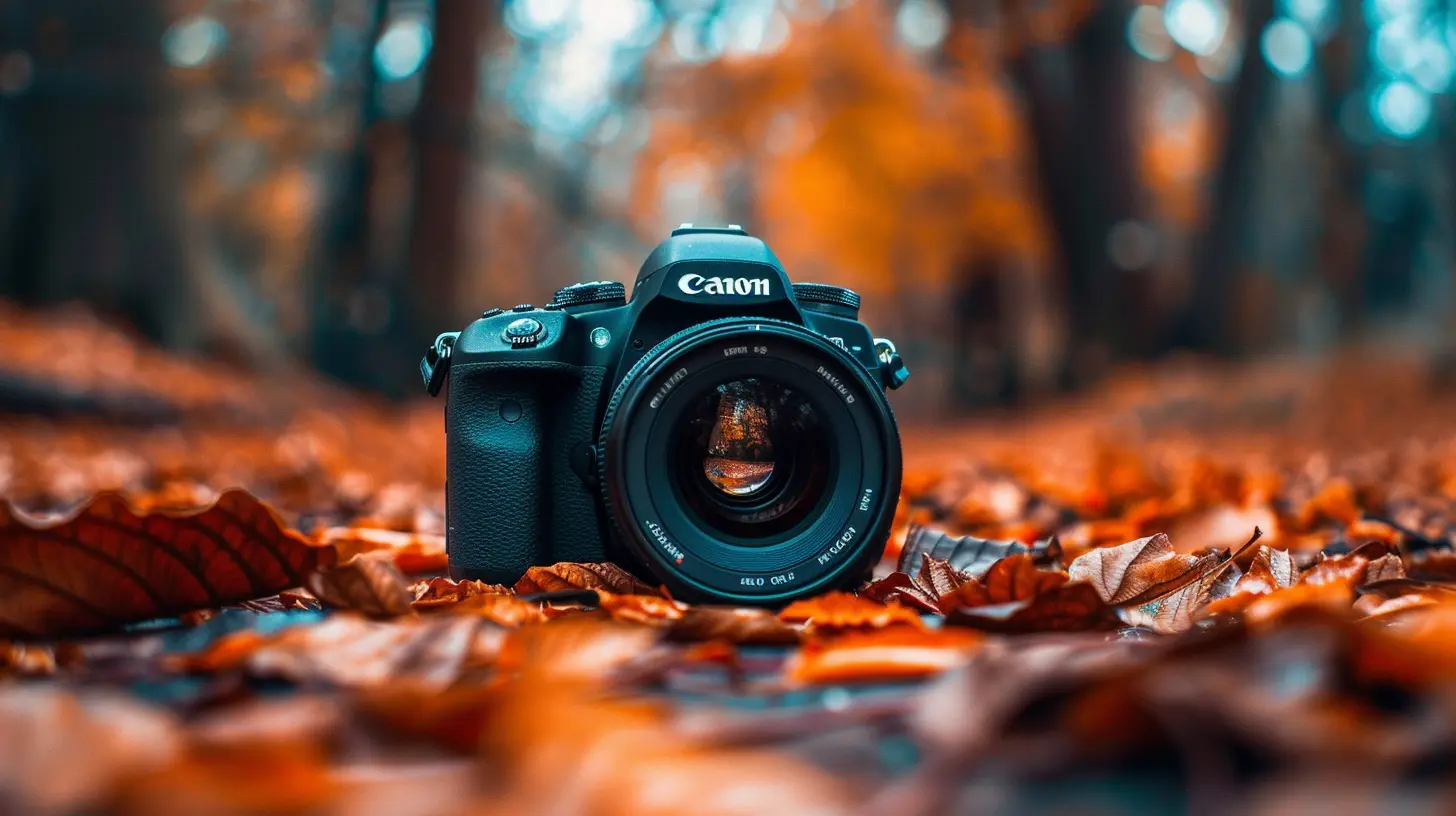
3. AI-Enhanced Autofocus
Gone are the days when you'd miss a great shot because your camera couldn't lock onto the subject fast enough. Modern digital cameras equipped with AI now boast AI-enhanced autofocus systems that are smarter, faster, and more accurate than ever before.AI-powered autofocus can track moving subjects with incredible precision. Whether you're photographing a fast-moving car on a race track or your dog chasing its tail in the park, AI ensures your camera stays locked onto the subject. It can even anticipate the direction in which the subject is moving, thanks to predictive algorithms.
This technology is a godsend for sports photographers, wildlife enthusiasts, and anyone capturing fast-paced action. You don’t need to worry about blurry or out-of-focus shots anymore, as AI does the heavy lifting for you.
4. Face and Eye Detection
Here’s where things get even more impressive: face and eye detection. The camera's AI system can recognize human faces and even pinpoint the subject’s eyes to ensure that they are the sharpest part of the image. After all, the eyes are the windows to the soul, right?This feature is a game-changer for portrait photography, where focusing on the eyes is crucial. No more awkwardly blurred faces in what could have been the perfect shot. AI takes care of it, making sure your subject's eyes are in razor-sharp focus, even if they're moving around.
And it doesn’t stop there! AI can also recognize multiple faces in a single frame, ensuring everyone in a group shot is properly focused. It’s like having a personal assistant who ensures nobody in the group photo looks awkward or out of focus.
5. AI-Supported Image Editing
Believe it or not, AI doesn’t just help you take better photos—it can also help you edit them. Many modern cameras and smartphones come with built-in AI-supported image editing tools that can enhance your photos in just a few clicks.AI can analyze your image and make automatic adjustments to brightness, contrast, saturation, and sharpness to give you a polished final product. Some systems even offer AI-based retouching, which eliminates blemishes, smooths skin, and reduces noise in low-light conditions.
AI is like that friend who’s great at Photoshop but can do it in a fraction of the time. Imagine the convenience of having professional-quality edits without spending hours tinkering with sliders and filters.
6. AI-Driven Video Capabilities
AI’s role extends beyond still photography; it's also making waves in the world of video recording. Modern cameras now utilize AI for features like object tracking, scene recognition, and stabilization.For instance, AI can automatically follow a subject as it moves across the frame, ensuring they remain in focus throughout the entire video. This is particularly handy for vloggers or anyone shooting dynamic scenes without a dedicated camera operator.
Moreover, AI-powered stabilization systems are a lifesaver for handheld video recording. Whether you're walking, running, or even filming from a moving vehicle, AI keeps the footage smooth by compensating for camera shakes and jitters. It’s like having a built-in Steadicam, minus the bulky equipment.
7. AI for Post-Processing
AI also plays a huge role in post-processing. After you've taken a photo or video, AI can help you organize, sort, and select the best shots.Services like Google Photos use AI to automatically tag your images, making them easier to search and sort through. For example, if you want to find a picture of your dog, AI will scan your photo library and show you only the relevant images.
Moreover, AI can even help you select the best photo from a burst of shots. Remember those group photos where someone always has their eyes closed? AI can identify the best image where everyone’s eyes are open, and no one is making a weird face.
8. AI in Smartphone Cameras
While professional DSLRs and mirrorless cameras are incorporating AI, smartphone cameras are where AI truly shines. With limited hardware space, smartphone manufacturers rely heavily on AI to compensate for smaller sensors and lenses.Take Google's Pixel phones, for example. The AI-powered Night Sight mode allows users to capture stunning photos in low-light conditions, which would be nearly impossible with traditional camera setups. Apple's Deep Fusion is another example, where AI analyzes multiple exposures to create highly detailed images, even in challenging lighting conditions.
Smartphones are also leveraging AI for portrait mode, live filters, and even augmented reality (AR) applications. Essentially, AI is turning your pocket-sized device into a professional-grade camera.
The Future of AI in Digital Cameras
So, what does the future hold for AI in digital camera technology? In a word: exciting.As AI continues to evolve, we can expect even more advanced features that push the boundaries of what's possible in photography and videography. Imagine cameras that can predict the perfect shot based on your location, lighting, and even your past photography preferences. Or, AI that can seamlessly remove unwanted objects from a photo in real-time.
One day, we might not even need to press the shutter button. AI could handle that for us, capturing the ideal moment without us having to do a thing.
Closing Thoughts: Is AI the Future of Photography?
In a world where capturing the perfect image is becoming easier than ever, AI is undeniably playing a significant role in modern digital camera technology. Whether you're a seasoned photographer or just someone who loves taking photos with your smartphone, AI is transforming the way we approach photography. It’s making cameras smarter, faster, and more intuitive.But at the end of the day, AI is just a tool. While it can help you take better photos, it’s your creativity and vision that bring those images to life. AI might be the brain behind the lens, but you’re still the heart.
So, is AI the future of photography? Absolutely. But that doesn't mean it will replace the human touch—it will only enhance it.
all images in this post were generated using AI tools
Category:
Digital CamerasAuthor:

Michael Robinson
Discussion
rate this article
22 comments
Christopher Vasquez
AI revolutionizes digital camera technology by enhancing image processing, automating focus, and improving low-light capabilities, ultimately empowering photographers to capture stunning visuals effortlessly.
February 17, 2025 at 4:05 AM

Michael Robinson
Thank you for highlighting the transformative impact of AI on digital cameras! Its advancements indeed empower photographers to achieve remarkable results with ease.
Ziva Ruiz
AI in cameras is like having a digital photo assistant! It knows just when to click, making our selfies and landscapes look fabulous with barely any effort!" 📸✨
February 4, 2025 at 7:15 PM

Michael Robinson
Absolutely! AI truly enhances our photography experience, ensuring stunning results with minimal effort. It's like having a personal creative partner! 📸✨
Rex Brown
This article beautifully captures the transformative impact of AI on photography. It’s inspiring to see how technology enhances creativity, allowing us to capture moments like never before. Thank you for shedding light on this revolutionary intersection of art and innovation—excited to see where it leads us next!
January 29, 2025 at 8:06 PM

Michael Robinson
Thank you for your thoughtful comment! I'm glad you found the article inspiring—it's exciting to explore how AI continues to shape and enhance our creative possibilities in photography.
Andrew McAndrews
Exciting times ahead! AI is revolutionizing photography, making every shot a masterpiece! 📸✨
January 26, 2025 at 4:03 AM

Michael Robinson
Absolutely! AI is truly transforming photography, empowering everyone to capture stunning images effortlessly. Exciting times indeed!
Wyatt McGarvey
Oh, fantastic! Just what we needed—machines that make our pictures perfectly flawless. Because who wouldn’t want an AI to decide how “perfect” our moments should look? Can’t wait for my camera to have opinions on my selfies next!
January 21, 2025 at 9:34 PM

Michael Robinson
I understand your concerns! AI aims to enhance creativity, not replace it. The goal is to provide tools that help capture moments while still allowing personal expression.
Francesca Snow
Absolutely inspiring! The fusion of AI and digital camera technology is reshaping photography, enhancing creativity, and making stunning visuals accessible to everyone. It's incredible how AI can elevate our storytelling through images. Excited to see where this innovation takes us in capturing the beauty of our world!
January 19, 2025 at 3:48 AM

Michael Robinson
Thank you! I'm glad you found it inspiring. The potential of AI in photography truly opens up new avenues for creativity and expression. Exciting times ahead!
Monica Sharp
Great insights! It’s fascinating to see how AI enhances creativity and accessibility in photography, empowering both professionals and enthusiasts to capture moments like never before.
January 15, 2025 at 9:59 PM

Michael Robinson
Thank you! I'm glad you found the insights valuable. AI truly is transforming photography for everyone!
Nadine Hensley
AI enhances creativity, empowers photographers.
January 8, 2025 at 11:29 AM

Michael Robinson
Absolutely! AI tools in modern cameras streamline workflows and offer innovative features, allowing photographers to focus more on their artistic vision.
Otto Diaz
Game changer for photography!
January 1, 2025 at 5:20 AM

Michael Robinson
Thank you! AI is indeed transforming photography by enhancing image quality, automating processes, and enabling new creative possibilities.
Lyanna Benton
Great article! It's fascinating to see how AI is revolutionizing digital camera technology, enhancing image quality and user experience. The integration of AI not only streamlines processes but also empowers photographers to unleash their creativity. Excited to see where this innovation takes us next!
December 27, 2024 at 11:54 AM

Michael Robinson
Thank you for your insightful comment! I’m glad you found the article engaging and appreciate your enthusiasm for AI’s impact on photography. Exciting times ahead!
Jocelyn Estes
AI isn't just enhancing digital cameras; it's redefining photography. From auto-focus to intelligent scene detection, it's not just about capturing moments—it's about transforming them into art, one algorithm at a time.
December 14, 2024 at 5:30 AM

Michael Robinson
Absolutely! AI is revolutionizing photography by elevating technical capabilities and enhancing creative expression, making each shot a unique work of art.
Kane Frye
AI in cameras: finally, tech that helps you take that perfect shot instead of relying on your questionable selfie skills. Who knew machines could have better taste than most of us?
December 6, 2024 at 11:57 AM

Michael Robinson
Thank you for your comment! AI truly enhances photography by optimizing settings and composition, making it easier for everyone to capture great images, regardless of skill level.
April Reynolds
AI in cameras: like a tech-savvy squirrel in a tree of pixels! It’s crunching data nuts to capture your best angles—let’s just hope it doesn’t start directing selfies!" 📸✨
December 2, 2024 at 12:27 PM

Michael Robinson
That's a fun analogy! AI truly enhances photography by optimizing settings and ensuring we capture our best moments—no directing needed! 📸✨
Lauren McLaury
This article beautifully highlights how AI enhances our photography experience, making it more accessible and intuitive. It's exciting to see technology evolving in ways that empower creativity while fostering a deeper connection to our captured moments. Well done!
November 30, 2024 at 4:55 AM

Michael Robinson
Thank you for your thoughtful comment! I'm glad you found the article insightful and inspiring. AI truly is transforming photography in remarkable ways.
Bailey Adams
Great insights on how AI is transforming digital cameras! It’s fascinating to see technology enhancing our creativity and making photography more accessible for everyone. Keep up the excellent work!
November 28, 2024 at 4:51 AM

Michael Robinson
Thank you! I appreciate your support and enthusiasm for the topic. It’s an exciting time for photography with AI advancing the possibilities!
Zeal Adams
AI enhances modern digital cameras by improving image processing, enabling faster autofocus, and automating adjustments for optimal photography results.
November 24, 2024 at 1:33 PM

Michael Robinson
Thank you for your insightful comment! Indeed, AI plays a crucial role in advancing image quality and user experience in modern digital cameras.
Darius Jordan
This article brilliantly highlights the transformative impact of AI on digital camera technology. It's fascinating to see how intelligent algorithms enhance image quality, automate processes, and empower creativity. As we embrace these advancements, we’re not just capturing moments; we're redefining our artistic expression. Exciting times ahead for photographers everywhere!
November 22, 2024 at 7:28 PM

Michael Robinson
Thank you for your insightful comment! I'm glad you found the article illuminating—exciting times indeed for photographers as AI continues to evolve and enhance creativity!
Roxanne Reyes
Great insights! AI truly transforms photography today.
November 20, 2024 at 7:41 PM

Michael Robinson
Thank you! I'm glad you found the insights valuable. AI is indeed revolutionizing the way we capture and experience photography.
Dean Wade
AI in cameras is like having a smart friend who knows exactly when to snap the perfect shot. Love this tech evolution!
November 19, 2024 at 4:51 AM

Michael Robinson
Thank you! AI truly enhances our photography experience, making it easier to capture those unforgettable moments.
Lily McTiernan
AI enhances photography drastically!
November 17, 2024 at 7:37 PM

Michael Robinson
Absolutely! AI significantly improves image quality, automates editing, and enhances creative possibilities in photography.
Fay Kirkpatrick
This article provides a comprehensive overview of how AI enhances modern digital cameras, improving image quality and user experience. While it aptly highlights the benefits, a deeper exploration of potential drawbacks, such as over-reliance on technology, would further enrich the discussion.
November 12, 2024 at 4:36 PM

Michael Robinson
Thank you for your insightful comment! I appreciate your suggestion to explore potential drawbacks of AI in digital cameras, and I'll definitely consider adding that perspective in future discussions.
Fleur McGivern
Great article! It's fascinating to see how AI is revolutionizing digital camera technology, enhancing image quality, and automating settings. The integration of smart features like scene recognition and real-time editing truly elevates user experience and creativity in photography. Keep up the great work!
November 7, 2024 at 10:21 AM

Michael Robinson
Thank you for your kind words! I'm glad you found the article insightful. AI's impact on photography is indeed transformative, and I appreciate your engagement with the topic!
MORE POSTS

How to Capture Stunning Architecture Photos with Your Digital Camera

The Rise of Big Data in Sports Analytics
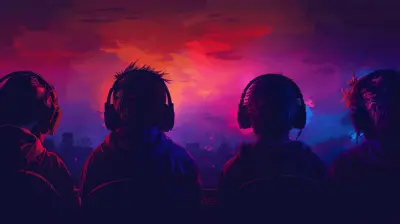
The Impact of Social Media on the Careers of Esports Players

Exploring the Intersection of Robotics and 3D Printing

The Impact of Green Tech on Reducing Carbon Footprints

Advances in Transparent Solar Panels: Windows that Generate Power

The Importance of Intellectual Property Rights for Tech Startups

Funding Strategies Every Tech Startup Founder Should Know

The Importance of Strategic Partnerships for Tech Startups

The Best Tools for Editing Photos Like a Professional

The Importance of Game Updates and Patches in Competitive Play

How to Use Tech to Plan the Perfect Trip

Best Tools for Creating Eye-Catching Social Media Content